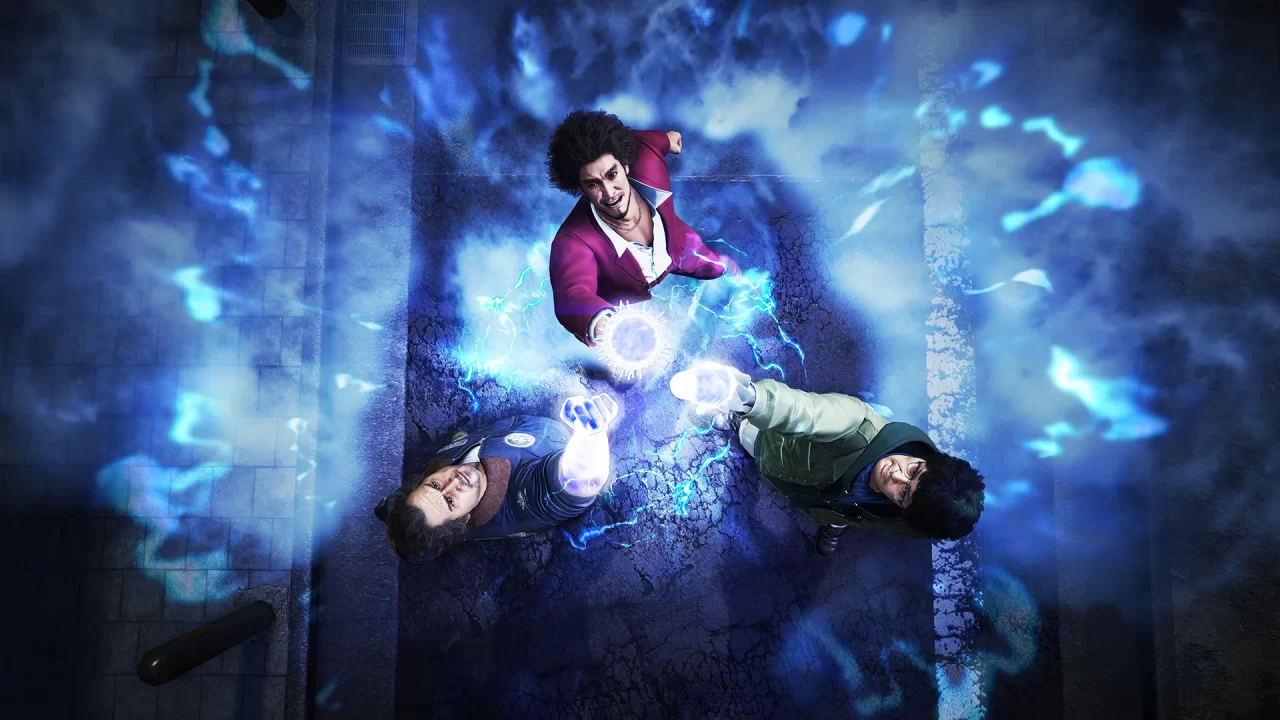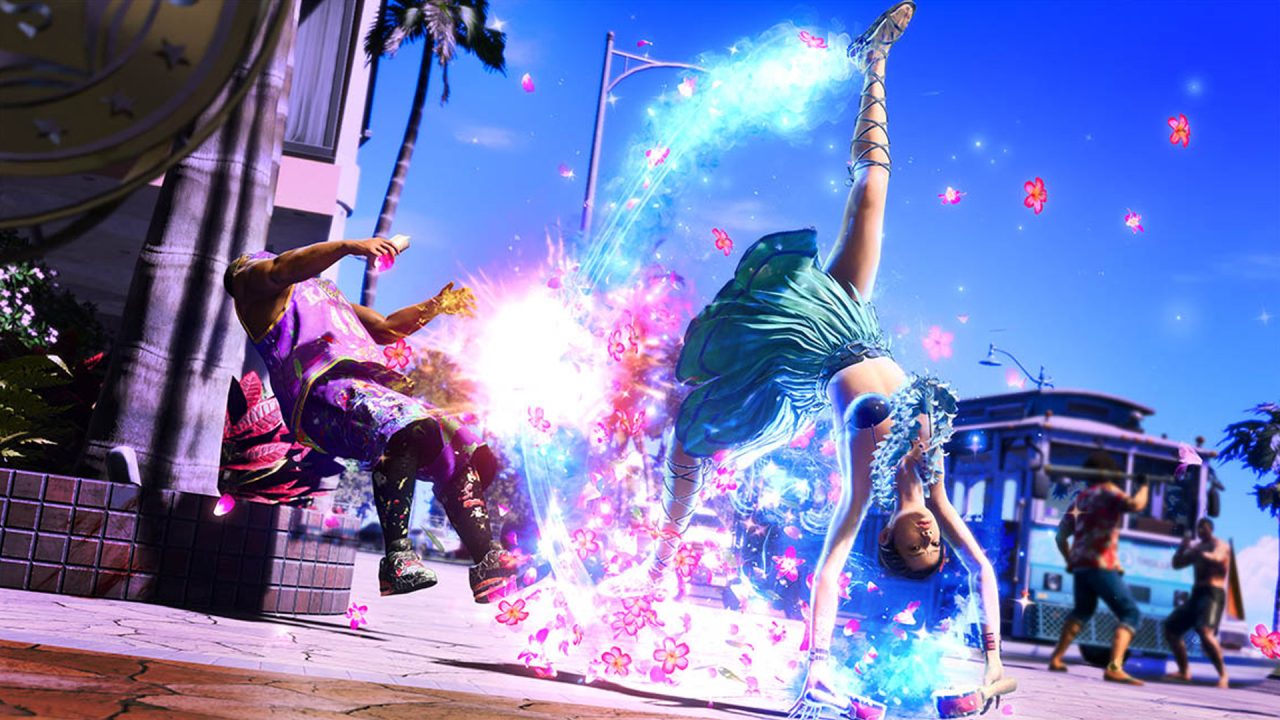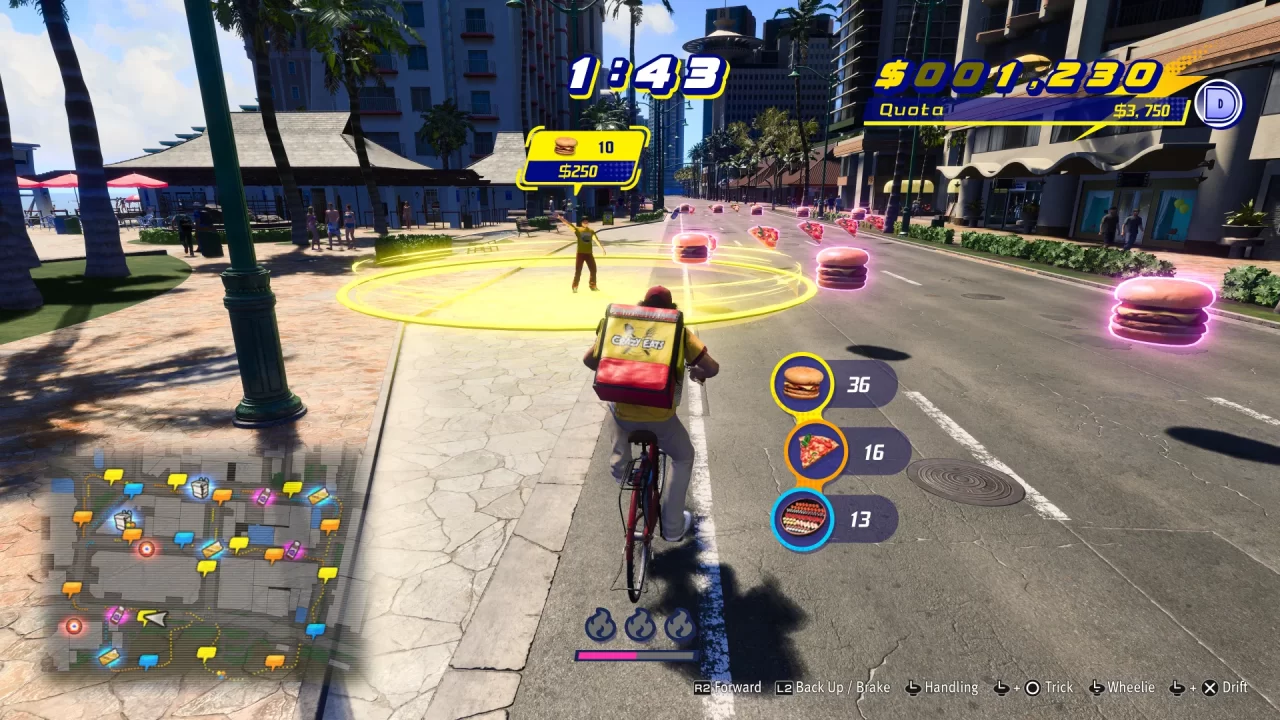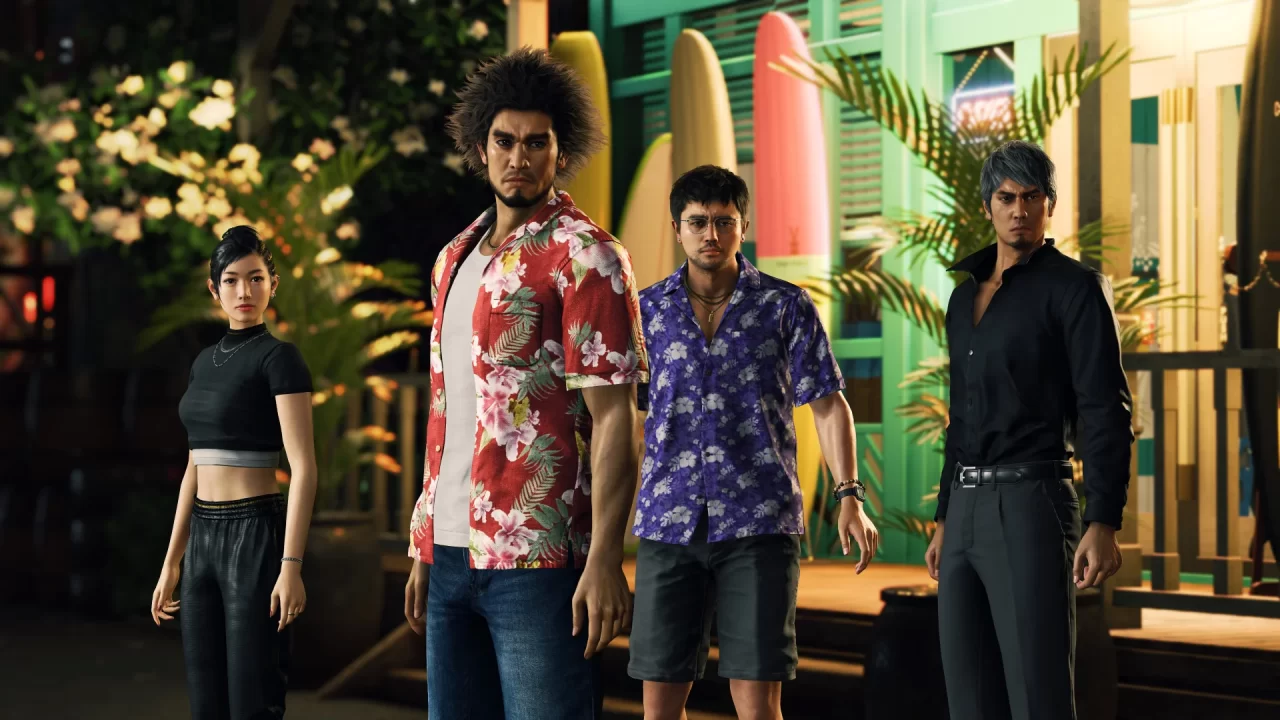Moreso than usual this winter, I found myself longing for a vacation. Maybe somewhere warm and exciting, where I could leave behind the cold and snow and instead dive into deep blue waters and sun.
Clearly, the folks at Ryu Ga Gotoku Studios were feeling the same because they gifted us with the perfect vacation game this January with Like a Dragon: Infinite Wealth, the direct sequel of Yakuza: Like a Dragon!
The ex-yakuza are in crisis! After the dissolution of the Tojo Clan and Omi Alliance, thousands of former criminals are blocked from reintegrating into society by the Five-Year-Ex-Yakuza Clause. Their only hope is a hero working at Hello Work named Ichiban Kasuga! Taking up the cause of his former patriarch, Ichiban strives tirelessly to help the former yakuza earn an honest living. But after a misleading hit piece is broadcast by the tabloid Vtuber the Tatara Channel, Ichiban finds himself canceled, out of a job, and at rock bottom yet again. His fortunes soon turn when his former yakuza captain reveals that Ichiban’s long-thought-dead mother, Akane, is actually alive and living in Hawaii. Flying out for a long overdue reunion, Ichiban soon discovers that his mom is not only missing, but also the target of every criminal organization in the state. To uncover the truth about his mother’s disappearance, Ichiban must build a new team of Hawaii-based friends/party members and, in doing so, uncover a massive conspiracy that could change the state of geopolitics across the world forever!
When Yakuza: Like a Dragon released in 2020, it was a breath of fresh air for the long-running franchise, and also did something rare in JRPGs: Rather than having a group of teenagers save the world, LaD proudly embraced a group of unemployed, down-on-their-luck 30- and 40-somethings. But it was the creation of the new protagonist, Ichiban Kasuga, that was a masterstroke. Though his origin story mirrored the history of long-standing protagonist Kazuma Kiryu (imprisoned for a crime he didn’t commit and betrayed by those closest to him), his infectious positivity and desire to be a hero set the tone for the new direction of the series.
These character traits serve him well in Infinite Wealth, as Ichiban’s relentless desire to see the best in people drives him to make a ton of new friends in Hawaii. New characters like taxi-driver-turned-reluctant-yakuza Eric Tomizawa or housekeeper-with-a-secret Chitose Fujinomiya instantly make a great impression, giving Ichiban someone new to play off. But if you are worried that Ichiban will forget his old friends, relax, because the entire cast of LaD is also here. And to top it all off, we have the return of the Dragon of Dojima himself, Kiryu, as Ichiban’s new Hawaiian vacation BFF.
My biggest concern coming into Infinite Wealth was the implied shared protagonist role between Ichiban and Kiryu. Thankfully, Ichiban is indisputably the main character of Infinite Wealth, with Kiryu (for most of the game) taking the role of just another party member. As someone who desperately wanted this series to move past Kiryu (especially after the disappointing Like a Dragon Gaiden: The Man Who Erased His Name), RGG has won me over with this approach. Early in the game, we also learn that Kiryu is dealing with significant health issues that have dramatically reduced his legendary combat prowess, necessitating him to join the party rather than go it alone. By putting Kiryu into a position where he must rely on others to fight his battles, we see him grow in a way that he hasn’t for decades. In this way, RGG has found new life for our favorite dragon, while not upstaging the outstanding new protagonist they’ve created in Ichiban.
With the massive cast, you might expect it to be tricky to balance all the characters equally. And you’d be right. The story of Infinite Wealth needed editing. The first and second chapters, in particular, are very slow. While the overall story is great and becomes quite compelling in later chapters, it takes way too long to get there.
Though the Yakuza series started out with smaller areas to explore, such as Kamurochō, they’ve been pushing larger with every entry. And in Hawaii, I think they’ve arguably created their first full-on open world. Honolulu is a masterpiece of environmental design. With a half-dozen different neighborhoods to explore and dozens of businesses, the city genuinely feels like a real place (which, I suppose, it is)! From the shadiness of the docks to touristy Aloha Beach, exploring Honolulu can initially feel daunting. But soon, you will get to know it as well as Kamurochō or Isezaki Ijincho from LaD and Lost Judgment.
The most significant improvement in Infinite Wealth is the combat system. While LaD did an admirable job translating the real-time brawler combat into a turn-based framework, it still felt somewhat static. You had no freedom of movement while it was your turn, so positioning yourself for environmental attacks or knocking enemies into each other was more an act of luck than intention. All of that has changed with Infinite Wealth. Now, you can move freely in an area around your character to strategically position yourself for back attacks, set up combo attacks with your party, or pick up nearby items to attack enemies. It’s more dynamic and fun, and frankly, anything that makes it easier to beat an enemy senseless with a bicycle is a good thing. Infinite Wealth’s combat system is a blast, and if you were put off by the more static turn-based combat in LaD, I implore you to give it another try here.
Of course, combat is only one part of the Like a Dragon experience, the others being substories and minigames. It might not actually be an infinite amount of content, but it sure feels like it while you are playing. We have the usual staples like darts, golf, and mahjong, but also entirely new side activities like a bicycle parody of Crazy Taxi by way of Uber Eats, a Pokémon Snap-inspired pervert photography minigame, and an online dating sim. They’ve even gone the extra karaoke mile with the expanded cast, as there are more karaoke songs than ever before, including a “sequel” to Baka Mitai. All of this, however, is only scratching the surface.
In 2020, LaD introduced the idea of Sujimon, a Pokémon parody where classes of random street thugs are cataloged in your “Sujidex.” Infinite Wealth takes this to the next level by introducing a full Pokémon-style minigame complete with trainers, random raids, and gym battles. This isn’t just an isolated side activity either, as Ichiban has a brand-new job, Sujimancer, that allows him to summon Sujimon to his aid. If you want to be the very best, you will need to grind. This side story perfectly captures the feel of the source material, especially the “gotta catch ‘em all” nature of “collecting” one of every Sujimon!
Like a Dragon: Infinite Wealth‘s other massive piece of side content is the business sim. Ichiban wisely capitalizes on his experience running a national snack company in Like a Dragon by opening a Hawaiian resort! Dondoko Island is a run-down, heavily polluted, no-star vacation resort that Ichiban must build up to attract progressively better tourists and reach a five-star rating. Pulling elements from both The Sims and Animal Crossing, Dondoko Island is a perfect getaway from the events of the main game. There is even a side story involving a gang of polluting pirates straight out of a Captain Planet episode! My only complaint is that instead of the standard battle system, Dondoko Island features an awkward real-time combat system where Ichiban stiffly swings his baseball bat to knock out pirates and mounds of garbage. It feels unbelievably clunky, which is especially annoying as they have a time-tested brawler-based combat system baked into the Dragon Engine. But even with that minor quibble, the engaging environment and the cameo appearances of fan-favorite characters as potential guests make this a side activity well worth your time.
As usual with Like a Dragon, the audio design is near-flawless. The soundtrack is filled with old favorites and new melodies. In terms of the voice acting, the returning cast from LaD effortlessly slips back into their characters, instantly making you feel as if you’re back among old friends. Takaya Kuroda goes beyond his usual magnificent job as Kiryu as he is confronted for the first time with an enemy that he can’t just beat to death with a bicycle. With the exception of a single Western character who inexplicably speaks his English dialogue with a heavy Japanese accent, the voice acting is exceptional. I can’t speak to the English cast, as I played the entirety of the game in Japanese and only replayed a few cutscenes with the English VO to get a taste. But if you enjoyed the English cast’s performances in LaD, I am sure you will enjoy them equally in Infinite Wealth!
Every concern I felt when playing The Man Who Erased His Name was cast off within an hour of starting Like a Dragon: Infinite Wealth. It’s not only a perfect sequel to LaD but also an excellent example of a modern JRPG. Most importantly, it finally provides us with a natural conclusion to the story of Kazuma Kiryu that doesn’t feel forced or contrived. With an engaging, complex storyline, incredibly charming characters, and a truly shocking amount of side content, Infinite Wealth effortlessly continues the Yakuza legacy. I can’t wait to see what RGG decides to do next (but maybe give us a bit of a break, as we’ve had THREE Like a Dragon games released within the last year)!








